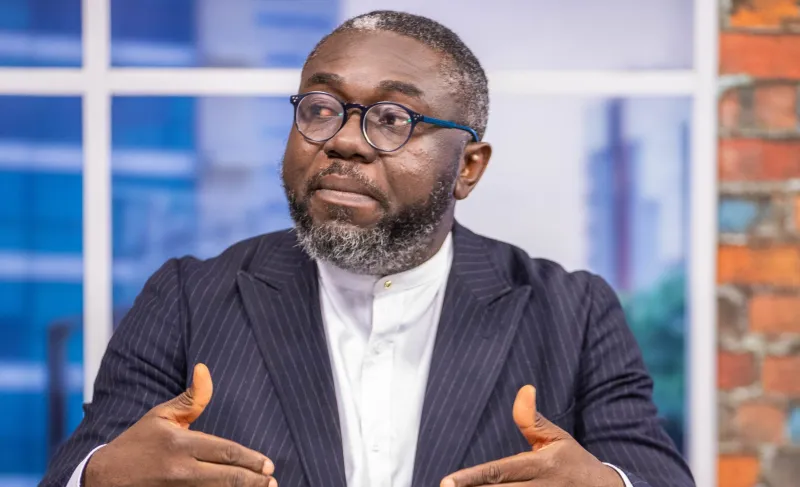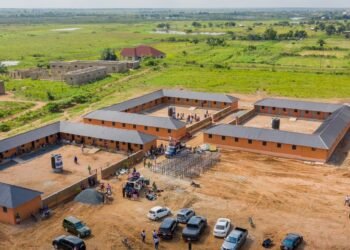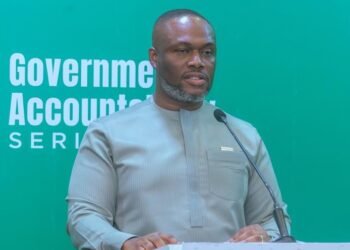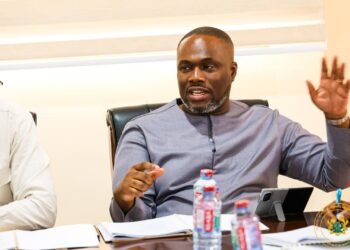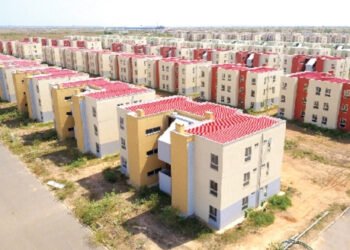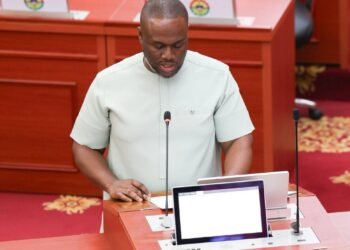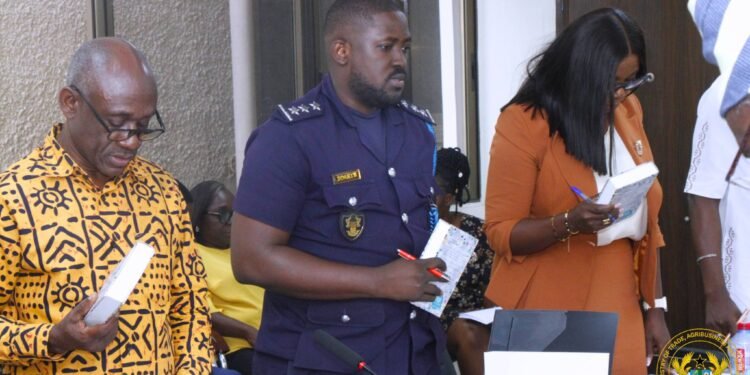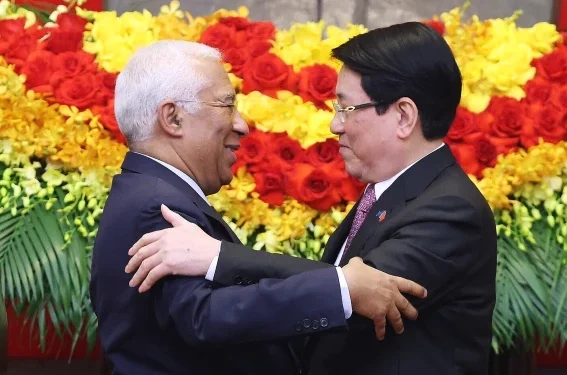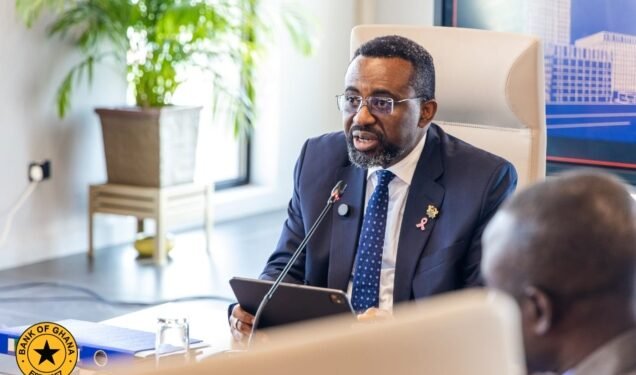Private legal practitioner and activist, Osagyefo Mawuse Oliver Barker-Vormawor, has called for the establishment of a robust anti-corruption and asset recovery framework to ensure that stolen public funds are effectively traced and retrieved.
According to him, while the government’s new anti-corruption drive—particularly the Operation Recover All-Loots (ORAL)—is a commendable step, its success will depend largely on the institutional capacity and the sophistication of investigative and prosecutorial mechanisms supporting it.
In a detailed critique of Ghana’s current approach to fighting corruption and financial crimes, Barker-Vormawor expressed deep concern that the existing system lacks the depth and coordination necessary to handle the magnitude of corruption cases currently being unearthed.
“Let’s just take the committee itself. We are talking about over 2,000 cases that all require independent and rigorous investigation. My challenge with ORAL is not about the commitment of the Attorney General, Dr. Dominic Ayine, and his Deputy, Dr. Justice Srem-Sai, but about the institutional capacity to investigate and prosecute this wealth of cases properly.”
Osagyefo Mawuse Oliver Barker-Vormawor
He argued that the government cannot rely on the status quo to achieve meaningful results. “I don’t think that we can just rely on the system as it exists now and as it’s functioning now to get us there. There’s a lot more that has to be brought in place,” he emphasized.
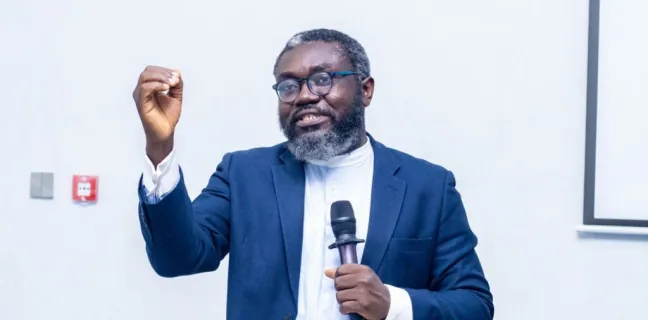
Civil Recovery of Stolen Assets
Barker-Vormawor further lamented that while there is much focus on criminal prosecution, there has been little attention to civil recovery of stolen funds, which he believes is crucial for restoring public resources.
“Even as we’re talking about the criminal aspect, I’m not seeing the civil department of the Attorney General’s office pursuing significant recoveries”.
Osagyefo Mawuse Oliver Barker-Vormawor
According to the activist, Ghana’s current anti-corruption efforts appear piecemeal and reactive, often targeting individual cases rather than establishing a systemic framework for recovery and deterrence.
He warned that during the lengthy criminal processes, there is a real risk of dissipation or concealment of stolen funds.
“Whilst we are pursuing the criminal process and putting individuals in court, there will be dissipation and concealment of their booty, allegedly. There should therefore be a two-pronged approach”.
Osagyefo Mawuse Oliver Barker-Vormawor
He elaborated that financial crimes involving the diversion of state funds typically involve complex networks of money laundering, often extending beyond national borders.
“There has to be chains of money-laundering activities going on to make the money disappear—whether through the regular banking system or outside of it”.
Osagyefo Mawuse Oliver Barker-Vormawor
Best Examples
Drawing comparisons with practices in advanced jurisdictions, Barker-Vormawor noted that in places like the United States, the Department of Justice not only prosecutes offenders but also aggressively tracks and retrieves stolen or laundered funds.
“They work with banks in other countries to get that money back, whether it’s in Barbados, the Bahamas, or elsewhere. We have not yet put such recovery systems in place here”.
Osagyefo Mawuse Oliver Barker-Vormawor
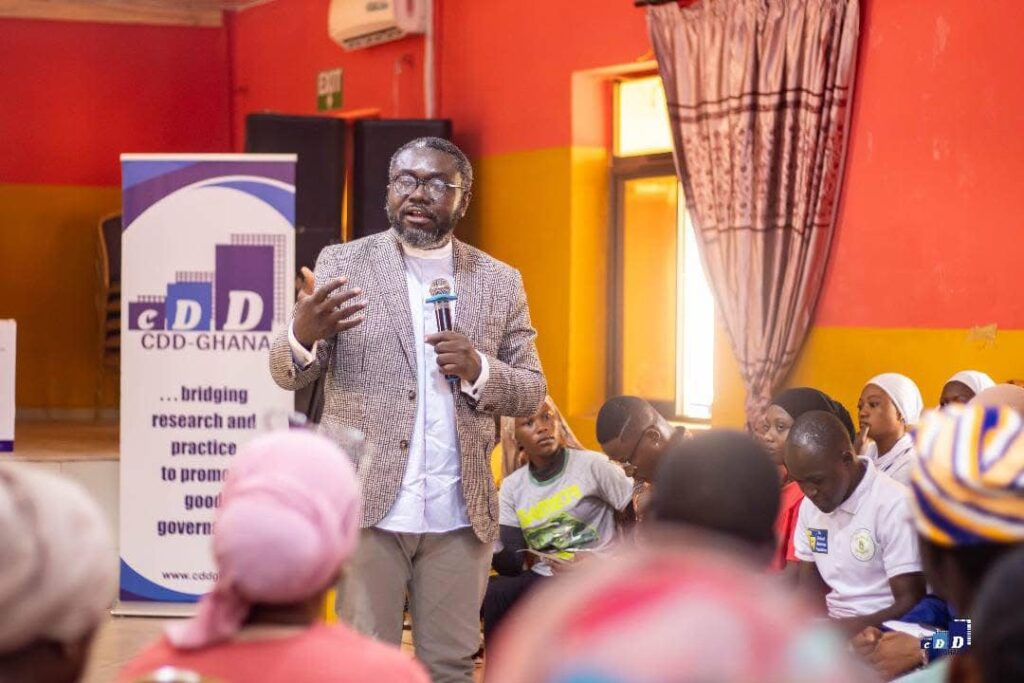
He criticized Ghana’s approach for relying on voluntary returns of stolen money from implicated individuals rather than systematic tracing mechanisms.
“The conversation we are getting about recovery is that, in terms of certain individuals, they volunteer to bring back some amounts. But when you put in place a system that traces funds, it better informs you as to how these monies disappear and how they are then put into circulation”.
Osagyefo Mawuse Oliver Barker-Vormawor
Barker-Vormawor pointed out that some stolen funds may not pass through traditional banking channels but could be converted into assets such as gold and moved abroad, making recovery efforts more complex.
“I have heard of people who are buying gold and then transporting it out. There’s transnational crime in itself that we have not even equipped ourselves to understand,” he said, underscoring the need for greater technical capacity in asset tracing and financial intelligence.
Strengthening Institutional Capacity
He further noted that Ghana’s Attorney General’s Civil Department lacks the sophistication to handle complex white-collar crimes and asset recovery cases. He advocated for the inclusion of experts and young prosecutors trained in financial forensics to strengthen institutional capacity.
“We have not brought in other experts who are leading training and showing us how to build that capacity progressively,” he said. Barker-Vormawor likened the situation to expecting the police to solve a murder case without adequate forensic tools.
“It’s like taking the police department and saying they are supposed to investigate murder but haven’t built capacity for fingerprint analysis or DNA testing. It means there’s a whole host of crime we’ll never be able to prosecute.”
Osagyefo Mawuse Oliver Barker-Vormawor
He added that this lack of capacity has affected major criminal investigations in Ghana, citing the unsolved murder of journalist Ahmed Suale as a painful example of the state’s investigative weakness.
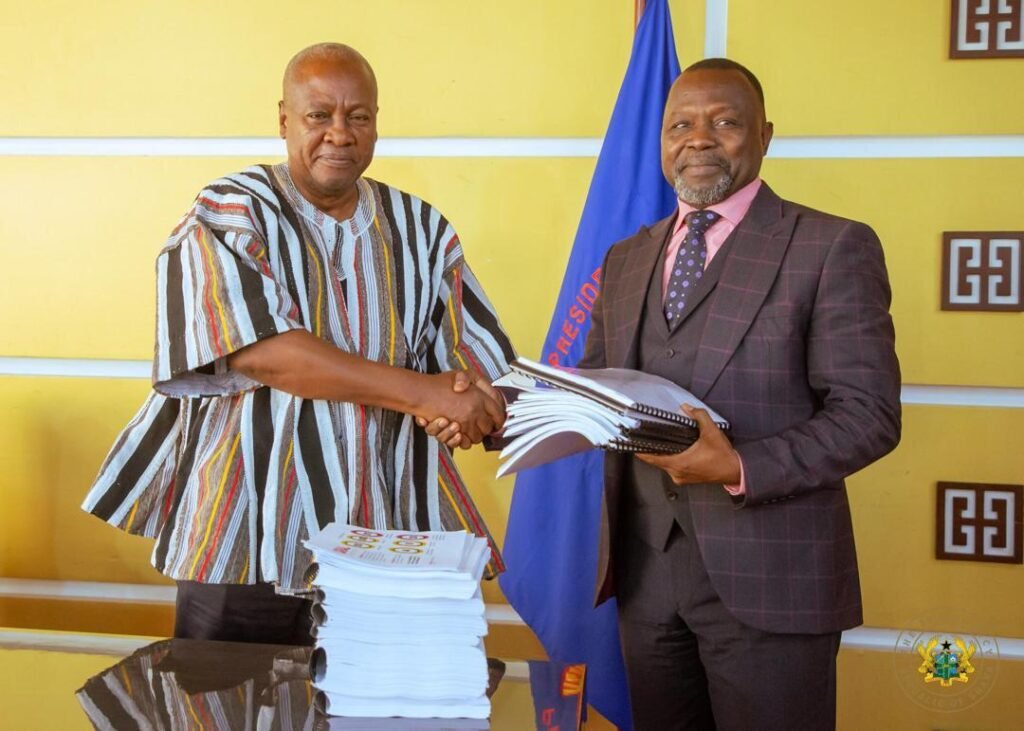
Touching on the case of another suspect linked to the journalist Ahmed Suale’s murder, who was detained and later released, Barker-Vormawor said such incidents reflect investigative inefficiency and disregard for due process.
“That’s an individual that I hope sues the state. Because from the beginning, when he was arrested, and then you are pushing the courts to continue to detain the individual, you must have something beyond just mere suspicion, which is making you continue to push.
“You can’t tell me that after how many years of investigation, when you say you have gotten a suspect, there’s something to work with. And it cannot just be that we want an individual to assist with the investigation.”
Osagyefo Mawuse Oliver Barker-Vormawor
Follow the Money
On the issue of following the money, Barker-Vormawor cited the Auditor-General’s report on the National Service Authority (NSA) Ghost Scandal, which revealed that the former Director-General allegedly pocketed about GHS 8.4 million in a single instance.
He insisted that efforts must be made immediately to recover such funds. “Absolutely. Immediately,” he stated firmly. He revealed that some investigative findings indicate that portions of stolen funds from such scandals were used to finance political campaigns, pointing to a disturbing intersection between corruption and political patronage.
“Some of this money went into political campaign financing. In certain constituencies, people were being given money from the state, and this was the money coming out of these scandals”.
Osagyefo Mawuse Oliver Barker-Vormawor
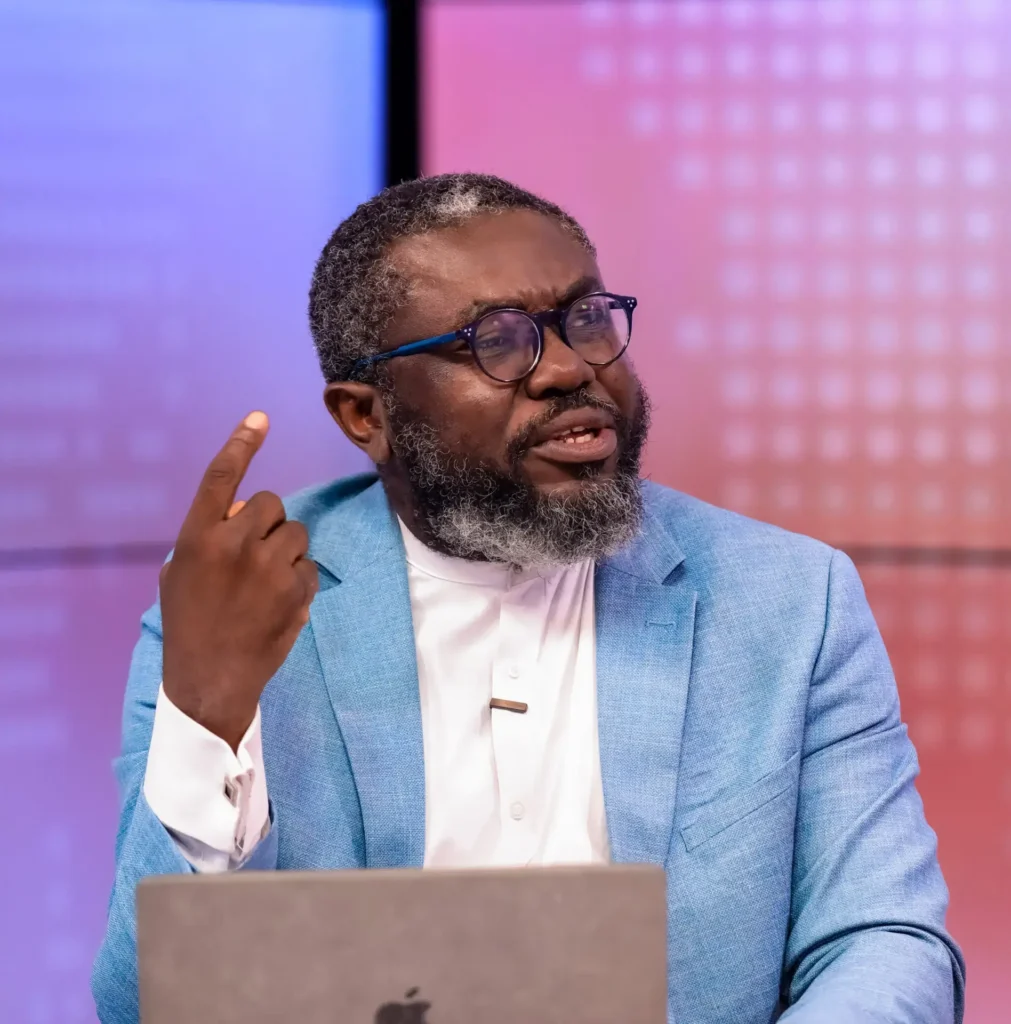
According to Barker-Vormawor, addressing such corruption comprehensively requires political will to follow the trail wherever it leads, even if it implicates politically connected individuals.
“If the Auditor-General says one individual pocketed GHS 8.4 million out of GHS 600 million, that leaves over $500 million unaccounted for. We should be looking for that money now”.
Osagyefo Mawuse Oliver Barker-Vormawor
He concluded by emphasizing that Ghana’s anti-corruption efforts must evolve beyond rhetoric and fragmented prosecutions.
The focus, he said, should be on establishing a holistic, well-resourced framework for both criminal prosecution and civil recovery of stolen funds. Without such a structure, he warned, “we will continue to chase individuals while the money quietly disappears.”
READ ALSO: Ghana Stock Exchange Ends Week Strong As GSE Financial Stocks Surge 2.9% in a Week

